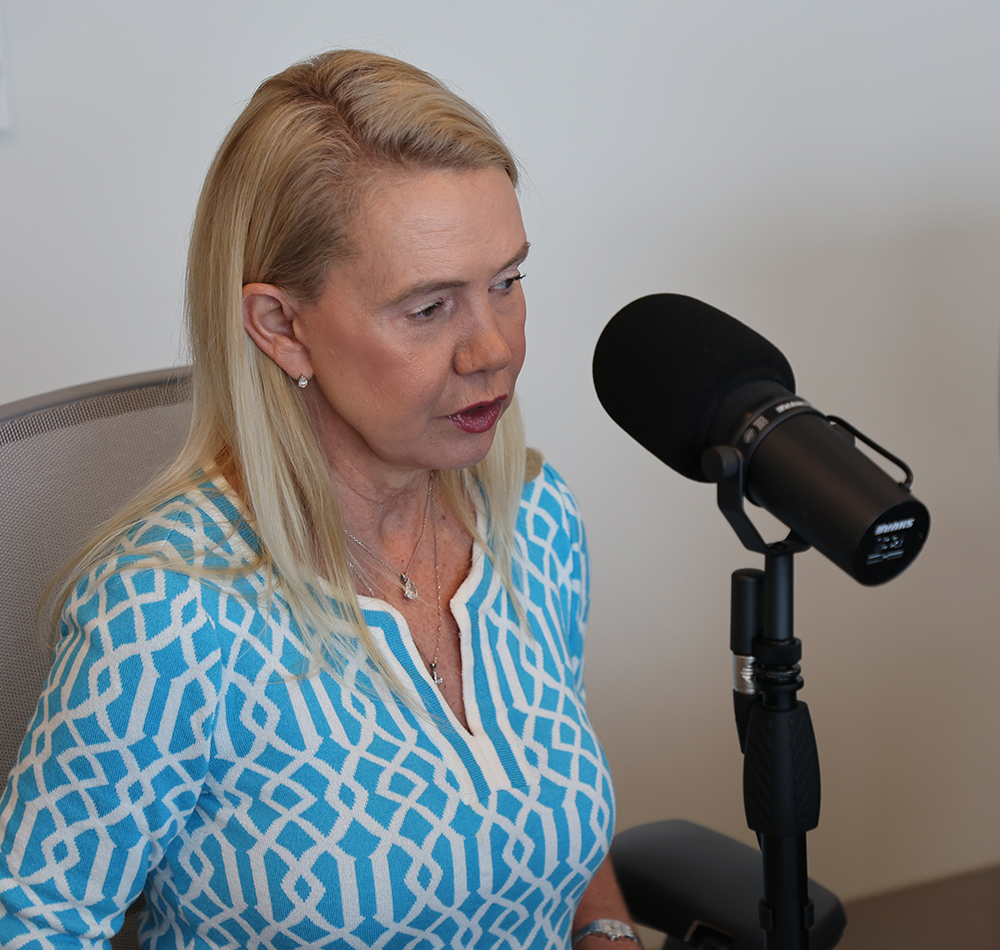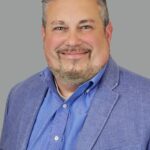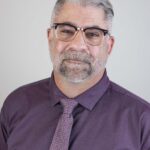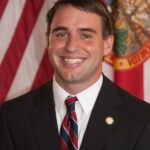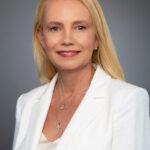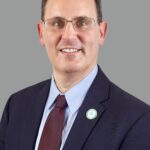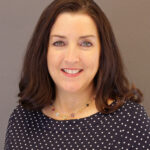The recent “Well Beyond Medicine Day” in Orlando, Florida saw the Nemours Children’s Podcast truck on site and ready with microphones open to hear from Nemours associates at all levels, including six members of the Nemours Children’s Health, Florida Leadership Team.
Of them, we asked three specific questions, eliciting a variety of thought-provoking answers. Listen in as we bring you, in their own words, the Nemours Children’s Health, Florida leadership perspective on the barriers and challenges surrounding the social determinants of health, and firsthand accounts of patients and families working with Nemours associates to overcome such barriers, both large and small.
Thanks for tuning in today! How do you go well beyond medicine? How do you celebrate it? Please visit NemoursWellBeyond.org to submit a comment or leave a voicemail — you just might be featured on an upcoming episode of the show. You can also catch all of our episodes at NemoursWellBeyond.org and sign up for our monthly newsletter.
Carol Vassar, producer
Guests:
Martha McGill, MBA, MHA, President, Central Florida Region, Nemours Children’s Health, Florida
Daniel (Dan) J. Podberesky, MD, Chief Medical Officer, Nemours Children’s Hospital, Florida
Jared Capouya, MD, FAAP, Chief Quality and Patient Safety Officer, Nemours Children’s Health, Florida
Todd Glass, MD, MS, FAAP, Division Chief, Pediatric Emergency Medicine, Nemours Children’s Hospital, Florida
Vonda Sexton, MBA, Vice President, Chief Strategy and Business Development Officer, Nemours Children’s Health, Florida
Jacob Horner, Associate Vice President, State External Affairs, Nemours Children’s Health
Well Beyond Medicine Episode 30, Transcript
Carol Vassar, podcast host/producer:
Welcome to Well Beyond Medicine, the Nemours Children’s Health Podcast. Each week we’ll explore anything and everything related to the 80% of child health impacts that occur outside the Doctor’s office. I’m your host, Carol Vassar. And now that you are here, let’s go.
The recent well Beyond Medicine Day in Orlando saw the Nemours Podcast truck on site and ready with microphones open to hear from Nemours’ associates at all levels, including six members of the Nemours Florida leadership team. Martha McGill, President for Nemours Central Florida. Dr. Daniel Podberesky, Chief Medical Officer. Vonda Sexton, Vice President and Chief Strategy Officer. Jacob Horner, Associate Vice President of State External Affairs. Dr. Todd Glass, Division Chief of Emergency Medicine and Jared Capouya, Chief Quality and Safety Officer. Of them, we asked three specific questions, eliciting a variety of thought-provoking answers.
So in three parts we bring you in their words, the Nemours Florida leadership perspective on the barriers and challenges surrounding the social determinants of health and firsthand accounts of patients and families working with Nemours’ associates to overcome such barriers, both large and small.
PART 1: We talk a lot about the social determinants of health, those conditions where people are born, live, learn, work, play, worship, and age, that affect a wide range of health, functioning, and quality of life outcomes. According to the Centers for Disease Control and Prevention, addressing differences in the social determinants of health makes progress toward health equity, a state in which every person has the chance to attain their highest level of health. So when it comes to the social determinants of health, what do the Nemours Florida leaders see as the biggest challenges ahead and the biggest opportunities. We hear first from Dr. Daniel Podberesky.
Dr. Daniel Podberesky, Nemours Children’s Health:
It’s a question that I approach as a pediatric radiologist who really was never familiar with or having to really think about social determinants of health in my everyday work. Now as CMO here in Central Florida, I have to think about it much more often.
To me, the biggest challenge that I see with tackling social determinants of health is the magnitude of the issue. It almost is an elephant that, how does the saying go? You have to take small bites one at a time. But as you tackle these issues one at a time, it sometimes feels like you’re not making any difference because they’re so enormous.
I’ve had to talk to myself sort of internally and talk to others about the fact that while it may seem like a Mount Everest climb, that every little piece that we’re doing ultimately boils down to one child or one family that we’re helping. And whether we’re helping them here on the medical side in the hospital or the emergency department or we’re helping a family outside the walls of this hospital, in the end, however large the enormity or the magnitude of the problem, one family, one kid, at a time is ultimately I think how We’re going to tackle this.
If there’s a child that’s ready to go home and all they need is a wheelchair or they need formula, but we can’t get them formula or they can’t afford the outpatient medication that they need, can we figure out novel sort of, I like to think of it as MacGyver ways of figuring out how to get these nonmedical, more social related type obstacles and make them into opportunities that we can actually solve for them.
Martha McGill, Nemours Children’s Health:
I would say among the challenges and there’s many, I think one is ensuring that there’s real collaboration among the social agencies. Also, Florida’s a haven for retirees and prioritizing the needs of children as our population ages, especially with state resources, we’re finding that to be a significant challenge. And then another challenge that we have been facing, I would say the headwinds for some time but it could get worse, is our workforce shortages among care providers, particularly our physicians and nurses.
I think there’s lots of opportunities. One thing that I think we should be very proud of as a society is that the social awareness of this generation that we’re experiencing there’s a true desire to help and I think that’s very exciting and something that will help us get to that next level. And then also I think the use of technology. Nemours is a pioneer in the use of technology to reach more and more children and I think that we’ll see more of this to come.
Dr. Jared Capouya, Nemours Children’s Health:
Yeah, I think there’s a couple. I think one is really trying to understand the populations we serve before they even ever hit our doors. So I think we do a lot of screening once they get here, but I’m wondering how can we maybe capture that information before they ever get here so we know where to target interventions earlier, either primary or secondary tertiary prevention efforts and get into neighborhoods that way. And then I think the opportunity is probably figuring out what payment mechanisms are, right? So that we can create resource around that.
Jacob Horner, Nemours Children’s Health:
Looking at it from a community engagement perspective, I think the biggest thing that we all know is that if you take a child out of poverty, you’re really addressing the root cause Of what it impacts healthcare. So Our community engagement team here at Nemours, we’re starting to look at four key principles for how we’re going to be looking at partnering with our community resources. So housing, food insecurity, early learning, and then economic development and pipeline growth are going to be really the key four areas that you’ll look to see Nemours continue to steer into to keep kids out of their doctor’s office and get them healthy to become productive adults.
I say to a lot of folks, pediatrics is prevention and doing so we need to be focusing on those social barriers that keep kids from being healthy. Things like housing or food insecurity. Those are our greatest needs right now as we look at that. And then another barrier is also just going to continue to be behavioral health. Behavioral health is such an important pandemic that we’re in right now is we think through the COVID-19 impact in the pandemic, what it’s done to the wellbeing of our children and our respective communities. So it’s definitely going to be an focal area for our system as we can address that head on.
Dr. Todd Glass, Nemours Children’s Health:
I think the challenges are structural and social. And maybe it sounds like a cliche, but institutionalized isms, classism, economicism, racism, languages, all those kinds of things that make us look at another chunk of society as something other than we are. And that leads to access issues and stability issues for families.
Just speaking from personal experience, when I was young, my mother was a single mother in the sixties who lived in tenement in the projects in a town, a city in the south. I went to the health department for healthcare, went to the food bank for food, all those kinds of things. So subject to a little classism. And then what really led to the change was economic stability, my mother remarried, and that moved us to a different economic stratum which allowed access to better education and all those other kinds of things, plus I’m a white guy from the south, not a black guy from the south.
So that stuff exists and because that stuff exists as part of our institutions, people seeing through some lens that’s preset in their head, organizations seeing through some lens that’s preset in their structure, the changes to make to even the playing field had to be structural changes. How do we build systems that are broad-based that provide emotional and mental health support so that families become socially stable internally and economic supports that become culturally stable broadly, that allows them really access to the basic things that they need in healthcare. And that leads to generational stability.
That’s the big opportunity, it’s probably some kind of public private partnership established broad-based services that are accessible sort of blind to all those isms and that is somehow functionally naive to economics. And what I mean by that is, you don’t have to worry about the money so much because the services are funded in a sustainable way. That’s why I say it’s probably a public private partnership.
Is it the risk proposition with Medicaid funded managed care plans and healthcare systems that can partner with them to assume responsibility for a large population? Basically the kids that don’t have all those accesses and then they can build mental health services for families, job services for families, educational opportunities for families and kids, all those kinds of things that then drive to lifting them up to some extent so that the kids then, that’s my perspective, right, the kids. Have the best health they can have, which allows them to succeed as well as they can, which allows them to provide a foundation for their kids and for their kids and for their kids, and for their kids….
Vonda Sexton, Nemours Children’s Health:
Currently, there are 4.2 million children in Florida and more and more are moving to the state every day. And so that means there’s a lot of children to care for. I believe that there’s fragmented care around resources that are available for the children and we really have to figure out how to facilitate and address those challenges.
I believe Nemours can be a facilitator for these children. We can address those needs. So I mentioned that there’s fragmentation amongst the resources, there’s a lot of people, a lot of organizations that want to help, but how do we come together and bring those resources to the families and to the children that need them? So I see Nemours as really a convener of those resources.
Carol Vassar, podcast host/producer:
PART 2: What barriers have these Nemours Florida leaders seen firsthand among patients and their families that prevent these patients and families from obtaining that full potential in terms of health and wellbeing? First up, Jared Capouya.
Dr. Jared Capouya, Nemours Children’s Health:
Yeah, that’s a good question. I think from a quality perspective, one of the things I think about a lot is, we have a lot of families who have complex health needs or complex medical needs and I don’t know that all of them know how to navigate a complex healthcare system very well. And so I think however we can help them understand, whether it’s the sequence of visits or when they need to see what doctor and what resources they need, what home health needs they need, what durable medical equipment, things like that that they need, that the more we can assist them and create equitable access to the doctors and the resources, clinicians they need. I think That’s one big barrier that I see out there.
The other one that I think of, and I think of this because I’m in quality obviously, and we look at a lot of outcomes, a lot of measures and many of those are healthcare centric. We create them, we don’t always look from the patient side and say, what are those patient-centric outcomes or what matters to them? What matters to the people we’re taking care of? And create outcomes around that and sort of balance it out.
Dr. Daniel Podberesky, Nemours Children’s Health:
Being fairly new to my role, I have been shocked at how the simplest littlest things can create barriers for kids to grow up to their full potential. Things as simple as transportation to get to the doctor’s appointment, food, clean air, clean water. Understanding the instructions that they’re being given by a healthcare provider, if language is a barrier. But every one of those little things, even here on the hospital side, when a child is ready to be discharged from a medical perspective, we often find out about all of these social or nonmedical issues that prevent the family from either being able to get the equipment, the medicine, the formula that they need for various reasons. Sometimes it’s as simple as there’s nobody that can get here to pick the child up to go home.
So I think sometimes we think these are huge issues like we need clean air or we need people to have food for lunch at school. But sometimes it’s as simple as this child is ready to go home, we have fixed whatever medical issue is going on and we can’t find someone who can get here to the hospital and pick the child up and take them home. So it’s small things, it’s big things, but for each of these kids and family, they’re all as equally as important.
Martha McGill, Nemours Children’s Health:
One of the barriers, and I experienced this firsthand as a mother of a child with a complex medical situation, is navigating the complex medical healthcare system as we’ve all experienced is not only is it complex, it’s fragmented. Additionally, I would say we’re seeing the reality of the impact that the economic inflationary pressures on our families. We are seeing unstable, fragmented families with complex social situations and we’re trying to address all of this.
Jacob Horner, Nemours Children’s Health:
I think one of the beauties of my role is I get to talk to the community. I hear from legislators, I hear from regulators and other community leaders and so many people will stop me and say, “You saved my child.” There’s also, folks who will stop me and say, “Hey, we just had this experience and there’s some lessons learned.” One of those recent examples, a little girl with asthma and let’s call her Sally. So Sally was coming to Nemours once a month, having respiratory breathing issues. We found out that she was in a house that wasn’t the most up-to-date with code. Actually it stemmed from air conditioning challenges. And we were able to work with her to get her the resources that were needed to retrofit their home. We haven’t seen her, except in primary care since. That was a really positive successful story.
What we’re doing is we’re beginning to embed social determinants of healthcare screeners within our primary care and urgent cares, which are allowing us to really try to identify those problems head on and then working with community partners. So United Way, their 211 program to be able to connect the dots and then close loop referral to be able to actually follow up with those patients afterwards.
Vonda Sexton, Nemours Children’s Health:
So what I see really tags on to what Martha and Jacob have shared. For the last 10 years since our hospital opened, we have really gone out and looked at some of these underserved markets where there wasn’t access to a pulmonologist or to care and bring that care to the families, to that community, and care for more children so they don’t show up in the ED or worse don’t get care. So increasing access in the community has been key to our success here in Central Florida and we see it over and over again, the families that now don’t have to drive an hour or worse that they may not have received the care, that we’re offering that right there in the community.
Carol Vassar, podcast host/producer:
PART 3: How did the departments headed by these Nemours Florida leaders demonstrate going well beyond medicine to create the healthiest generations of children? Once again, Dr. Daniel Podberesky.
Dr. Daniel Podberesky, Nemours Children’s Health:
So I think we do it every day. I’ve been really amazed and I feel an immense sense of pride knowing that we have a ton of people on the team here in Central Florida, Nemours, whose passion is tackling these issues. And again, it can be things as complex as a mobile clinic, which Dr. Laura Chilcott and we have several nurses and the residents participate in that endeavor and those are complex. You need a truck, you need supplies, you got to figure out where you’re going, how do you document everything. To things as simple as, someone told me the story the other day of a family, again back to transportation, that was having an issue transportation wise and we have team members that figure it out. Sometimes pitching in from their own resources to help families out in small but extremely meaningful ways.
And really we see it every day. We celebrate it at our huddles, we talk about it. We use something called connect to purpose at many of our meetings where we talk about why do we all do what we really do. And lots of the examples of connect to purpose, while a lot of them are medical, like someone saved someone’s life by finding a tumor very early. I mean those are obviously very meaningful as well. But a lot of the connect to purposes that are shared at forums and meetings here in the building, come back to just social type issues. Figuring out a way to ensure that a child who may be in a difficult social situation gets some toys or connects up with our in-house school program. I mean little things like that that I think just differentiate us a little bit from some of our partners around the state or even the country, that maybe don’t have as broad and as diverse of a perspective on pediatric health.
Vonda Sexton, Nemours Children’s Health:
My team really does actually reach out into the community to the provider. So if you look at the pediatricians really that primary care pediatricians really do actually see these children. So what we are trying to do is make sure that the pediatricians are armed with the information they need on what’s available. If we are the convener of some of these resources what’s available, we also can make sure that that’s available to the pediatricians to be able to share with the families. So I think as we continue to see that growth, making sure that we again know those resources are available for those families.
Dr. Jared Capouya, Nemours Children’s Health:
I think again, in quality and safety, one of the things that I like to talk about, especially with the team is, is that we’re there to help create health, that we’re there to around the vision of creating the healthiest generations of children, that we’re there to improve and push child health. So I like the, I don’t know if you’ve ever heard of the word health organization definition of health that it talks about physical health, mental health and social wellbeing. It also talks about that it doesn’t mean that somebody doesn’t have a condition but that they could be healthy if we address all three of those things.
So I think that’s something again that when we look at the quality of care, we can look in all three of those areas and then also look at disparities or inequities where there may be opportunities that certain populations are not getting that others are. And we can look at our data and through those lenses so that we can see where do we need to focus effort or where do we need to intervene so that everybody has sort of an equitable playing field to the same outcome.
Jacob Horner, Nemours Children’s Health:
I’ve the good fortune of getting a chance to work across our four state capitals in both the Delaware Valley and in Florida to work with lawmakers to ensure that they understand some of the challenges that are impacting pediatrics. We’ve talked a lot about prevention. We’ve got to continue to look at how we think about taking care of our really vulnerable children and ensuring that both we have access, we have enough providers that are going to be there to take care of those kids and that those children are using their primary care to create patient-centered family medical homes rather than, again, using the ICU and the ER. It’s unfortunately a very cyclical process and our hospital sees a little over 70% Medicaid on a given year. So we were talking about children that often have medical complexities but may be underserved. So working through that is a great opportunity, but also presents challenges as well.
We have an incredible community engagement team here at Nemours and both the power of our associates using the volunteer time off that we do to work with our partners in the community so that they understand the power of Nemours in both our clinical opportunities and then for our allied associates to be able to give their time in the community is huge. But identifying those partners who may be cutting edge in research that is going to help kids in Central Florida, in Jacksonville, Pensacola and in Delaware Valley. But also just working with those groups that are doing a lot in those social determinants of healthcare to create those supports to help our patients is huge.
Martha McGill, Nemours Children’s Health:
One of the things I’m most proud of is how we meet families where they are, whether it’s Vonda’s team, making sure we’re out in the community, keeping the children of Polk County, in Polk County. Or if it’s one of the primary care providers, keeping the children there at that primary care clinic that is the medical home that Jacob spoke about that does have behavioral health embedded in that facility. And also using, again, back to technology, making sure that we are using our telemedicine resources so that we can meet the children and families where they are.
But also want to emphasize that I think a wonderful way that we go well beyond medicine every day, when you walk the halls of this hospital, you see our care team going the extra mile day in and day out to really understand the details of every single child and their needs and making sure that whatever it takes to take care of that child while they’re here and also to make sure they have a nice landing with their transition to home. You see our care providers making sure that that gap is met.
Dr. Todd Glass, Nemours Children’s Health:
There’s really two things. One is the team cares. And what I mean by that is they’re individually and personally aware of things that drive healthcare and successful healthcare for kids. So when kids come into the ED, they’re aware of language issues, they’re aware of economic issues, they see something and they do something. Like a kid, if there’s a communication issue, then we would look to use the resources that we already have to kind of bring them on board. We build systems to get those services to kids.
If we can tell that they don’t have a good primary care provider or any primary care provider, we have handouts and we give information. If it looks really like there’s a real tenuous family, we’ll call our social worker down and social worker will work to connect them to public services that are available in the community. But it’s really all triggered by the fact that the team cares and when they see something, they try to do something in real time and remember that’s in the context of emergency department visits. So it’s not longitudinal care, that’s episodic care, and we have a couple hours. So we do what we can, but if you go just one step deeper, we develop some initiatives that are a little more system-based.
Like one of my team members is working with the program to develop discharge instructions that are in Spanish. We’re in Orlando, a lot of people speak Spanish and most of our discharge instructions are in English. We work with our official translators to translate, but we also have staff members who will help us and the nurses who are speak Spanish we’ll reiterate the directions that I’ve given through the translator in Spanish when they see the kid go home.
We work on programs around human trafficking awareness and we have triggers. We educate on those signs to look for. We have an abuse and neglect pathway, which leads… That’s a lot of time based on family chaos, a lot of social and economic instability as kind of a driver of that kind of stuff. We have screenings built into our chart to look at the drivers of those kinds of things. So a lot of stuff like that are system-based.
What I think is really probably most important, individuals within the team do their own… For instance, we have providers who work at Shepherd’s Hall, a local service program for primary care, right? We have a couple of providers and other staff members who volunteer at a small orphanage down the street from us. We have people that do things like that, which shows that they have the heart and then they come to work and they bring that awareness and they help us drive programs and initiative. And when they see a kid or a family in need, they try to hook them up to the right services in real time.
Carol Vassar, podcast host/producer:
Dr. Todd Glass on how his team is working toward the healthiest generations of children. Ahead of Todd. We heard from Jacob Horner, Martha McGill, Jared Capouya, Vonda Sexton, and at the top, Dr. Daniel Podberesky. All of whom stopped by the Well Beyond Medicine podcast truck last month in Orlando. We thank them for their time, inspiration, and insights.
The Well Beyond Medicine podcast truck is coming to Jacksonville, Florida on October 5th as we celebrate Well Beyond Medicine Day there. That’s your opportunity to stop by say hi and chat on the record on what Well Beyond Medicine means to you and bring us your episode ideas for the future.
Can’t make it to Jacksonville? Head on over to our website, Nemourswellbeyond.org, and leave us a voicemail with your thoughts on Well Beyond Medicine, the concept and the podcast. We’d especially love to hear your feedback and ideas for upcoming episodes. While you’re there, check out our other episodes and subscribe to the podcast. Thanks to Che Parker and Susan Masucci for their help with producing today’s podcast, with special kudos to Cheryl Munn who gathered today’s audio.
I’m Carol Vassar, join us next time as we talk about maintaining the emotional wellbeing of children with chronic illnesses. Until then, remember, together we can change children’s health for good, Well Beyond Medicine.
